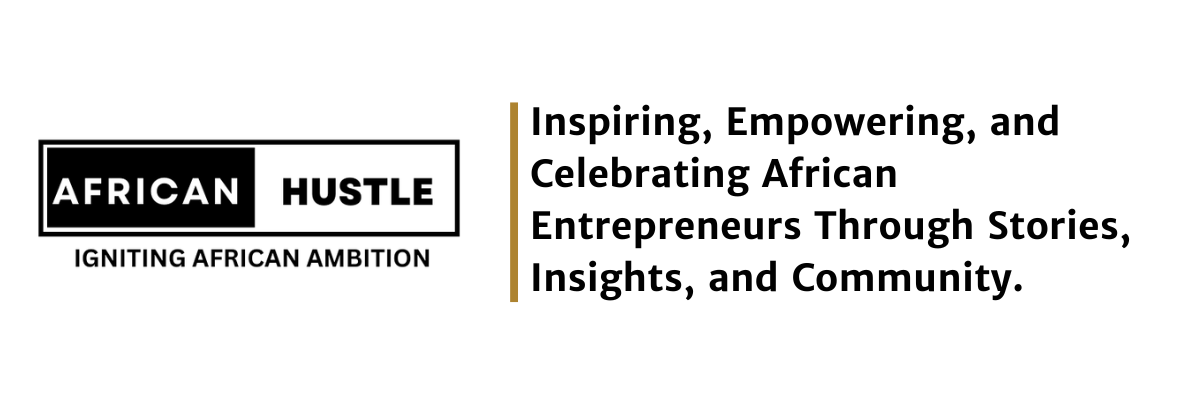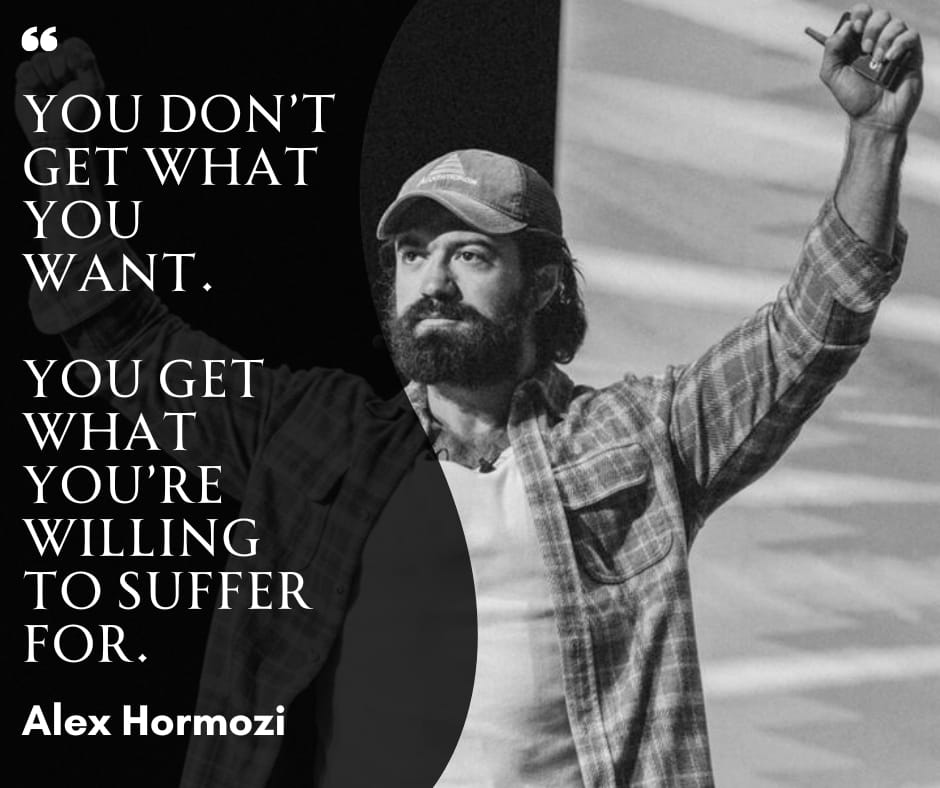
Welcome to African Hustle! Your bi-weekly dose of inspiration and smart insights into African entrepreneurship — featuring real stories about tech, culture, startups, founders, and innovations shaping the future of the continent.
Did You Know
In Q2, 2025, African AI startups raised a modest $14 million across five deals, representing just 0.02% of the global funding total.
This places Africa as the least funded region in the world by far.
Feature Story
On Friday, one of my clients received a call while we were mid-conversation. She runs a courier business, small, scrappy, and growing, with three bakkies (pickup trucks) crisscrossing South Africa’s highways.
She’s doing well, by most measures. She started with nothing and now has something to show for it. Employees, returning customers, a steady income, and the respect of her peers.
The call was from one of her drivers. It was after 5 p.m., but he still had deliveries left. A customer was expecting a parcel that day, one he had already promised to deliver. He wanted to confirm whether to grab the last few packages from the warehouse and finish the job, even if it meant working a bit of overtime.
Without hesitation, my client told him to park for the day.
“Tell them it’s raining or something,” she said.
This was a small, simple moment, but one that says everything about the state of many small businesses.
Here was an entrepreneur who had fought her way up from nothing, now empowering her staff to lie to a customer.
It’s easy to dismiss that as a one-off lapse in judgment, but in reality, it reveals a quiet crisis in entrepreneurship. The comfort trap.
The Trap You Don’t See Coming
When people imagine business failure, they picture bankruptcy, layoffs, and desperation. But the more common failure and arguably the more dangerous one happens quietly, under the guise of success.
You see it when an entrepreneur stops showing up with the same hunger they started with. When standards slip, not because the market got tougher, but because comfort set in.
That’s what I saw in my client. She wasn’t lazy; she was satisfied enough not to demand more from herself and her staff.
And that satisfaction, that subtle sense of “I’ve made it,” can be deadly.
It reminds me of my first business partnership. We started broke, both of us with nothing but ambition. In those early days, we were aligned. We worked tirelessly, sacrificing weekends, meals, and sometimes sleep, just to keep things moving.
But once the business started paying the bills, our definitions of success began to diverge.
I wanted scale, a national footprint, a recognisable brand, an enterprise that would outlive us. My partner wanted security, a decent living, time with his family, and peace of mind.
We reached a point where the business made enough to cover our needs, but not enough to make us wealthy.
The reason? Misaligned visions.
I pushed for reinvestment and expansion; he pushed for balance and comfort. Neither of us was wrong, but the result was stagnation.
We built a good business, not a great one.
Success Is a Moving Target
Lamar Tyler, a successful entrepreneur and business strategist, describes this phenomenon perfectly.
“At $500K–$700K in revenue, something dangerous happens that nobody talks about.
You don’t have the Maybach, but you have a Mercedes.
Not the mansion, but a nice house.
Not unlimited freedom, but enough comfort to lose your edge.
This is where most entrepreneurs get stuck permanently.”
Comfort dulls urgency.
It convinces capable people to stop climbing halfway up the mountain, mistaking a scenic viewpoint for the summit.
The Psychology of Enough
Every entrepreneur eventually encounters a version of one question.
When is enough, enough?
There’s no universal answer, and there shouldn’t be. But what matters is whether enough is a conscious choice or an unconscious surrender.
If you decide to slow down because you’ve achieved what matters most to you, like time, peace, or legacy, then that’s good for you.
But if you slow down because your thirst is quenched, hunger is sated, and comfort feels like relief, then you have fallen into a trap.
For my courier client, the trap came as soon as she could afford a comfortable car and a decent house. And it manifested in her letting standards slide.
The False Summit
When a business owner tells an employee to lie, even just this once, they’re setting a precedent. That short-term ease matters more than long-term trust.
It’s a dangerous exchange, convenience over credibility.
You might save five minutes today, but you lose integrity points that compound over time. Every compromise chips away at the foundation until what once felt solid begins to wobble.
Most entrepreneurs don’t lie out of malice. They lie out of fatigue, the exhaustion that comes from years of hustling without the hunger that once fueled them. They stop stretching because they no longer feel chased.
For those of us who grew up with little, the first taste of financial success can feel like the end of the race.
If you once earned $500 a month as a civil servant, building a business that makes $5,000 or even $10,000 feels monumental. You start comparing upward within your old frame of reference, instead of outward against your new potential.
That $5,000 might feel big at home, but it’s barely above an entry-level salary in some parts of the world. The world is bigger than your street, your city, or your comfort zone.
Why Most Businesses Plateau
Most small businesses never scale past their founders’ ambition. The company grows only as far as the founder’s hunger takes it.
When ambition cools, systems freeze.
When comfort sets in, innovation stops.
Look at your business and ask yourself:
Are we still improving, or just maintaining?
Are we making decisions for growth, or for convenience?
Do we hire to expand capacity, or to reduce our personal workload?
The best entrepreneurs I’ve met, the ones who build companies that last, all have one thing in common. They never lose the hunger.
Not the panic-driven hunger of survival, but the disciplined hunger of purpose.
They understand that comfort is not the reward; impact is.
They’re not obsessed with growth for its own sake. They’re obsessed with growth because stagnation feels like failure to them.
Pushing Past the Plateau
So how do you escape the comfort trap?
Redefine success often.
The definition that got you started isn’t the one that will sustain you. Review your goals regularly. Ambition should evolve with capacity.Surround yourself with discontent.
Build relationships with people who make you uncomfortable, not toxic critics, but high performers who challenge your standards.Reinvest aggressively.
Comfort tempts you to spend. Discipline demands you reinvest. Every surplus dollar is a vote for either the present or the future.Delegate growth, not maintenance.
Hire not just to offload tasks, but to expand reach. A team built for comfort will protect your current position. A team built for growth will push you forward.Protect your principles.
Never lie to customers. Never compromise integrity for convenience. Every time you cut corners, you teach your business that honesty is negotiable.
Most entrepreneurs stagnate because they run out of purpose.
They reach a point where survival is no longer in question, and instead of asking, What’s next? they whisper, Isn’t this enough?
If you choose to stop, stop because you’ve built something generational. Not because comfort drove you into complacency.
At the end of the day, business is not just about what you’ve achieved; it’s about who you’ve become in the process.
Quote of the Week
To succeed in life, we must stay within our strength zone but continually move outside our comfort zone.
Practical Tools
Google My Business
Google My Business helps you to create a simple, streamlined website that looks great in under ten minutes.
This tool is free, easy to use, and you can edit your website from your computer or phone.
Here are some of the benefits of using Google My Business:
Mobile responsive: It’s important to have a website that also works on mobile, as many potential clients will be searching for a business like yours on their phones.
Custom domain: Your website address will have your business name in it.
Integrated with Google Maps: Google My Business links your phone number and Google Maps location with your website, so your customers will know where to find you.
Trivia
Which African nation is like a linguistic buffet, offering over 500 different languages to sample?
(Nigeria)
Founder Insights
13 Founder Insights from Alex Mormozi

The 100-Day Rule
If you’re willing to be terrible at something for 100 days straight, you’ll outperform most people. Consistency beats talent every single time.Master the Three Hard Things
You can beat 99% of people if you can handle three things: the shame of rejection, the boredom of repetition, and the pain of honest feedback.The Real Price of Success
You don’t get what you want; you get what you’re willing to suffer for. If your goals feel too expensive, you have two options: lower your goals or raise your effort.Focus Is a Superpower
Say NO to shiny objects and distractions that don’t serve your current mission. Every YES to noise is a NO to progress.Boundaries Build Value
Charge what you’re worth. Stop giving discounts to friends and family; your business is not a charity.Learn Faster by Being Humble
Assume you’re the least knowledgeable in every room. Humility accelerates learning; it forces you to listen more, adapt quicker, and avoid the trap of false confidence.Skill beats shortcut every time
Building skills, such as sales, marketing, and execution, is far more valuable than seeking shortcuts. Hormozi says, “Entrepreneurship is about acquiring skills, beliefs, and character traits.”The market doesn’t care about your passion; it cares about value
You may love what you do, but revenue comes when you solve someone’s problem at scale.Consistency compounds more than intensity
Success is often just doing the obvious thing longer than most people are willing to.You only lose when you quit
The real failure isn’t defeat, it’s deciding you’re done. Keep moving, keep refining.Raise your price by raising perceived value
When you lift your price, you force a value shift. The consumer must perceive more value; you must deliver it.If you don’t start in imperfect conditions, you’ll wait forever
Waiting for perfection is a trap. Start where you are, with what you’ve got, and iterate continuously.Your surroundings shape your outcome
Everything matters: who you hang around, what you watch, what you tolerate. If you want higher outcomes, upgrade your environment
Hustler’s Cheat Sheet
Connection requires initiative.
Friendship requires effort.
Love requires action.
Be the one who reaches out — text first, call, show up.
Strategies & Philosophy
Guerilla Strategy
Guerrilla strategy is a low-cost, high-impact marketing or business approach that relies on creativity, surprise, and unconventional tactics to achieve maximum results with minimal resources. It relies on elements like word-of-mouth, social media, and unexpected in-person experiences to create buzz and a lasting impression.
You should consider it because it allows small businesses with limited budgets to compete effectively against larger players by standing out, creating buzz, and building strong emotional connections with their audience through originality and bold execution.
Proverb of the Week
He who hates growth kills a calf.
Enjoyed this post? Share it with someone who might find it helpful and encourage them to subscribe!
If we missed something, we’d love to hear from you — hit reply and let us know what insights you want us to dive into next.
And if this email was forwarded to you, you can sign up here!

